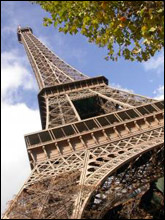Robert Farley speculates that more corruption in local government might be just the trick in getting mass transit projects built, using as his example the endlessly stalled Seattle monorail. Matt Yglesias links approvingly and says:
The problem with this, of course, is that insofar as corruption is driving your infrastructure investment, you wind up paying a certain “corruption premium” on your investments — i.e., they’re suboptimally efficient.
Nevertheless, it turns out to be the case that America significantly underinvests in public infrastructure from a purely economic point of view under the status quo. Thus, the corruption premium might very well be a price worth paying to rectify structural underinvestment in the infrastructure sector. What’s more, public capital is good for social equality above and beyond its economic benefits. … Realistically speaking, you never get public infrastructure under ideal conditions — the only alternative is too little infrastructure, and that’s worse.
I don’t really have anything to say about this. I just find it amusing.
(As a Seattleite, I would break some knees myself at this point to get the #%$! monorail going.)



